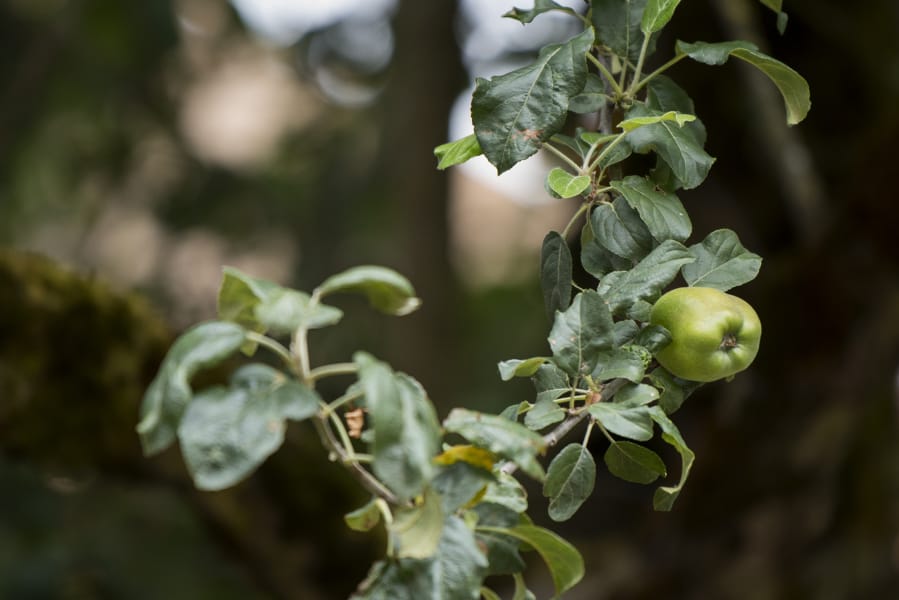Thanks to a team of local experts, Vancouver’s beloved Old Apple Tree is moving on to the next chapter of its long, historic life by growing a new tree out of its root system. Scientists also discovered from genetic testing that the apples are unique to anywhere in the world.
This summer, the Old Apple Tree Research Team declared the tree’s trunk dead at the age of 194. The team, composed of professionals from the National Park Service, Bartlett Tree Experts, local farms and Vancouver’s Urban Forester Charles Ray, was formed back in 2009 after the tree suffered multiple branch failures.
“We knew this day would come,” Ray said. “We were just hoping we were still years away.”
Although the trunk has died, the root system lives on, and another stem will take its place. Ray said that back in 2015, the research team began to notice root suckers, saplings grown from the same root system as the main trunk, popping up around the tree. One of those carefully cultivated saplings will be allowed to stay at the tree’s current location, thriving on the root system left behind by its former self.
“The new tree is the Old Apple Tree. It’s just a new chapter in its life,” Ray said. “The new stem is just another opportunity for the educational value of the life cycle of a tree.”
According to Jessica George, outreach coordinator for Vancouver Urban Forest, the rest of the saplings will be relocated to the replica historic orchard at Fort Vancouver later this year.
“We’ll retain one at the current location and cultivate it into the Old Apple Tree with a similar historical landscape in mind,” George said. “The orchard (that) the rest are headed to is actually in the historical location that the old Hudson’s Bay Company orchard was in.”
Bartlett Tree Experts, which has been donating upkeep services to the Old Apple Tree since the ’90s, will continue to provide care at the site.
Ray, who’s been Vancouver’s urban forester for almost 20 years, said that he will miss the old tree but is excited about its future. But the Old Apple Tree will live on here in Vancouver and through its offspring scattered across the Northwest.
“It was definitely a jarring kind of shock to the system,” Ray said. “I mean, it definitely felt like losing an old friend.”
Since 1984, cuttings from the tree have been given out at the annual Old Apple Tree Festival so visitors from across the region could plant a piece of the tree in their own backyard.
Bob Cromwell, local archaeologist and member of the research team, said that it’s likely the most reproduced apple tree in the Pacific Northwest.
“As long as there’s human beings that can tend to apple trees in the Pacific Northwest, the genes of that tree are going to continue prospering,” Cromwell said.
Genetically unique
Since the time it was planted in 1826, no one had been able to determine what type of apple grew from the Old Apple Tree. But that question was finally answered this year by researchers at Washington State University in collaboration with the National Park Service and Vancouver Urban Forestry.
In late 2019, DNA samples were gathered and sent to researchers at WSU in Pullman to see if the Old Apple Tree could be part of the university’s apple genome project. The results showed that the Old Apple Tree grows a one-of-a-kind, genetically unique apple.
Experts compared the genetic makeup with a worldwide collaborative database of several thousand apple varieties. They determined that the tree is not identical to another known apple tree and has no known parent-child relationships in WSU’s extensive apple genome database.
The closest relationship appears to be a distant one to the French Reinette, a 500-year-old variety considered by many the “grandmother of all apple trees.”
“This is wonderful news,” Cromwell said. “I just love that it spawned international research on a specific type of apple that was previously only known in France.”




